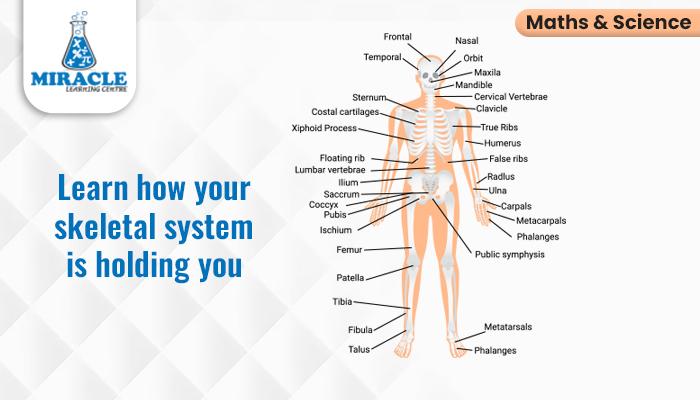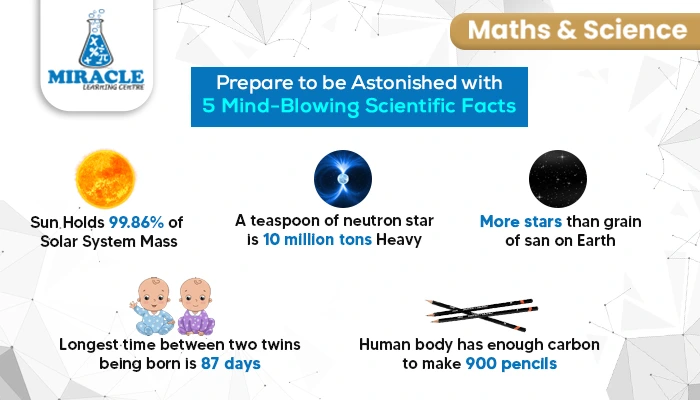The human body is an intricate and remarkable marvel of nature, and at the core of its structural framework lies the skeletal system. Often referred to as the body’s foundation, the skeletal system is a complex network of bones, cartilage, and connective tissues that provides support, protection, and mobility. At our science tuition centre, we believe that understanding the intricacies of the skeletal system is crucial for aspiring young scientists to appreciate the complexity and beauty of the human body.
In this blog, we will delve into the fascinating world of the skeletal system, exploring its composition, functions, and the vital role it plays in maintaining our overall health.
The Composition of the Skeletal System
The skeletal system comprises approximately 206 bones in an adult human body, though this number can vary slightly from person to person due to individual differences. These bones come in various shapes and sizes, with each serving a unique purpose. They are connected by joints, which allow for movement and flexibility, and are wrapped in a combination of muscles, tendons, and ligaments that work in tandem with the bones to facilitate bodily movements.
Bones are not lifeless structures; they are living tissues that are continually undergoing changes. They are composed of several layers, including the outermost periosteum, which is responsible for bone growth and repair, the compact bone, which forms the dense outer layer, and the spongy bone, which makes up the inner layer and is vital for red blood cell production. Within the bone tissue, there is also a cavity filled with bone marrow, where both red and white blood cells are produced.
Functions of the Skeletal System
The skeletal system performs a multitude of essential functions that are integral to our overall health and well-being. Let’s explore these functions in more detail:
Support and Framework:
At its core, the skeletal system serves as the fundamental structural framework of the body. It provides the essential support needed to maintain our body’s shape and posture, preventing us from collapsing into a heap of soft tissues.
Protection:
A critical function of this system is the protection of vital organs. The bones act as natural shields, ensuring the safety of crucial organs like the brain, heart, and lungs. For instance, the skull offers a protective enclosure for the brain, while the ribcage shields the heart and lungs from potential harm.
Facilitating Movement:
The skeletal system is the mechanical foundation for movement. By providing attachment points for muscles, bones allow us to perform various physical activities. This coordinated effort of muscles, joints, and bones enables everyday actions such as walking, running, dancing, and more complex movements.
Blood Cell Production:
Nestled within certain bones is the bone marrow, responsible for the production of blood cells. Red blood cells transport oxygen to body tissues, while white blood cells play a pivotal role in the body’s immune defense against infections.
Mineral Storage:
Bones serve as reservoirs for vital minerals, particularly calcium and phosphorus. These minerals are readily accessible when the body requires them for various physiological processes, helping to maintain overall mineral balance.
Metabolic Regulation:
The skeletal system plays a role in regulating calcium levels in the bloodstream, which is critical for muscle contractions, nerve signaling, and blood clotting. When blood calcium levels fluctuate, bones release or absorb calcium as needed to stabilize these levels.
As the body’s structural cornerstone, protector, and facilitator of motion, the skeletal system essentially exemplifies an amazing accomplishment of biological engineering. It is crucial to take care of this remarkable system, which can be done by eating a balanced diet, exercising frequently, and leading a healthy lifestyle. Take a closer look at these aspects using the knowledge at our science tuition centre, Miracle Learning Centre.
Common Skeletal Disorders
While the skeletal system is an incredible feat of nature, it is not immune to diseases and disorders. Some common skeletal issues include:
- Osteoporosis: A condition characterized by weakened and brittle bones, making them more susceptible to fractures.
- Arthritis: A group of inflammatory joint diseases that can cause pain, swelling, and reduced joint mobility.
- Scoliosis: A curvature of the spine, often appearing during adolescence, which can lead to postural issues and discomfort.
- Osteoarthritis: A degenerative joint disease that occurs with age, resulting in the breakdown of joint cartilage.
- Fractures: Broken bones that can range from minor hairline fractures to severe breaks that require surgical intervention.
Maintaining Skeletal Health
Maintaining a healthy skeletal system is essential for overall well-being. Here are some tips to help you keep your bones in top shape:
- Diet: Ensure a balanced diet rich in calcium and vitamin D, which are essential for bone health. Dairy products, leafy greens, and fortified foods are good sources.
- Exercise: Regular weight-bearing exercises like walking, running, and strength training can help strengthen bones and improve overall bone density.
- Lifestyle: Avoid smoking and excessive alcohol consumption, as these habits can weaken bones. Additionally, maintain a healthy body weight to reduce stress on your skeletal system.
- Safety: Take precautions to prevent accidents and fractures, such as wearing protective gear during sports and adhering to safety guidelines.
Conclusion
In conclusion, the skeletal system is not just a passive structure within our bodies; it is a dynamic and indispensable part of our overall health and well-being. Whether it’s providing the framework for our bodies to stand tall or safeguarding our vital organs, the skeletal system plays a crucial role in our daily lives.
At Miracle Learning Centre, we understand the significance of understanding the human body and its intricate systems. Our science tuition centre provides an ideal environment for students to learn science comprehensively. If you’re ever concerned about grasping topics like the skeletal system, don’t hesitate to join our science tuition program.
We’re here to help you explore the wonders of science and ensure you have a solid foundation in understanding your own incredible body. Your journey to scientific knowledge begins with us, so come and join Miracle Learning Centre today!


